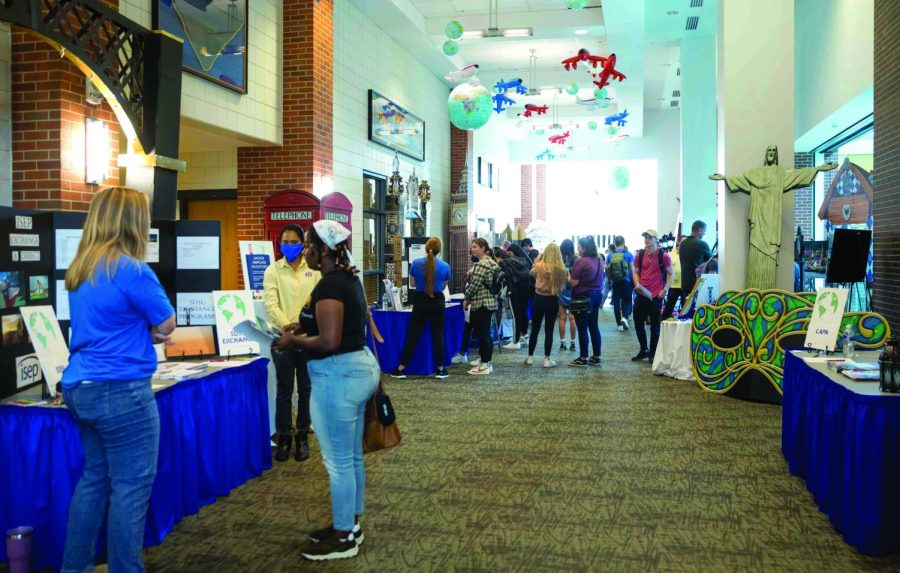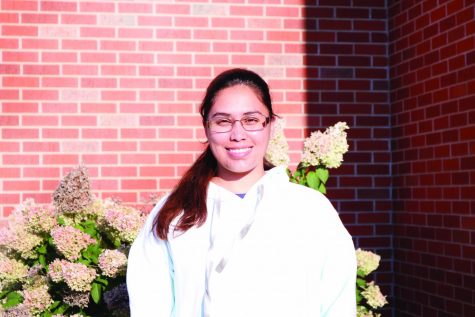Study abroad programs make a return
October 5, 2021
Locations this summer include Valencia, Costa Rica and more, Spanish professor says
When it came to the study abroad programs at South Dakota State University, the last year has been filled with questions and uncertainties. Now, students finally have the opportunity to travel once again.
Sally Gillman, director for Education Abroad, says her department will be hosting events on campus and visiting classrooms to get students interested in traveling abroad again.
“It enriches your degree so that you will stand out when you are on the job market and trying to get into graduate school,” Gillman said
Kaitlyn Kelly, a sophomore majoring in Spanish with a teaching specialization, plans on studying abroad this coming summer.
“You are able to use what you’ve learned and absorb the language better as you are constantly immersed in the language,” she said.
Of course, there are multiple opportunities that students can take to study abroad, said José (Pepe) Álvarez, a Spanish professor at SDSU. The program is offering study abroad trips to Valencia, Spain, for individual internships, and programs for both faculty and students in Costa Rica.
Though the enrollment process doesn’t start until early December, Álvarez says a few people have already voiced their interest in the programs.
One issue the programs still face is the issues still related to COVID and traveling permissions, which may dissuade people from going.
The study abroad programs will not be mandating vaccines; however, students will need to be vaccinated if they are required for entry into the country the student is traveling to.
“So if you want to go abroad and it’s required, then you’ll need to be vaccinated, otherwise you won’t get in,” Álvarez said. “The same thing happens when people want to come into the U.S.. They are not coming in unless they are vaccinated. Think of it similarly to a visa, if you don’t have one then you can’t come in.”
At the moment, Spain is requiring vaccination, while Costa Rica is not; however, if a student is not vaccinated, they will have to pay a deposit of about $3,000, in case they get COVID while there. That money will cover the cost of isolating and quarantining while abroad.
In terms of the location, Álvarez said programs will allow for a lot of open spaces and very little confinement to try and prevent the spread of COVID.
“Lots of the classes will be outdoors,” he said.
If by any chance there is another massive outbreak, study abroad programs would have to be postponed. However, for students who are required to travel based on their major, there is a plan B.
The Valencia program, known for its internship program, also offers virtual internships. Costa Rica will also be offering online courses. These classes will be based on the student’s requirements that they need to fulfill. Other online internships included courses centered in Barcelona and Madrid.
According to Álvarez, there were five Spanish majors with internships abroad last summer, four of which were in health professions.
One of them was Carlie Woodall, a pre-med and human biology and Spanish major. She studied abroad virtually right after finals last summer. She said that she had wanted to study abroad between her sophomore and junior year, since she would be taking her entrance exams this coming summer.
She mentioned that while she didn’t have the option to travel, she was glad that it all worked out in the end.
“I still wanted to gain the experience and all the knowledge that came with it and understand the culture even at a deeper level, even if it’s just over Zoom,” Woodall said.
Woodall did her internship for a biotechnology company. She worked behind the scenes by obtaining data and information about prostate and colorectal cancer, as the company was coming up with equipment to help hospitals and clinics.
Breeanna Wolkerstorfer, a student double majoring in human biology and Spanish on the pre-med route, plans to do the EuroAce internship study abroad program next summer. She thinks that it’s important because one gets to be immersed in the culture.
“Not only is it where I get to travel, but to take some classes and improve on my Spanish, and also work in a health care setting in a different culture,” Wolkerstorfer said.
She also mentioned that if people are interested in studying abroad, they should start looking into it right away.
“It takes more or less 18 weeks to get a passport. If you want to use your student loans on it, you have to fill out the 2022-2023 FAFSA, and that opens Oct. 1,” she said.






















